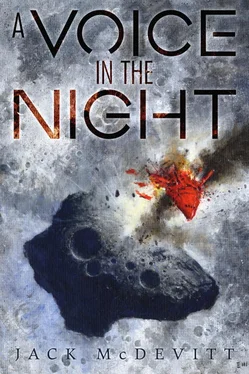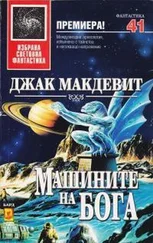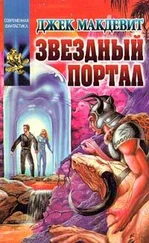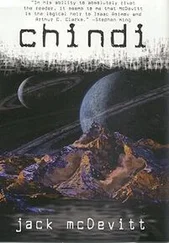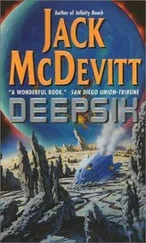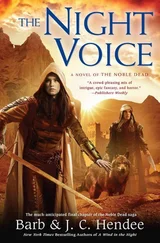“But you didn’t actually write one?”
“No. Not in the current usage.”
Al Harmon was the only athlete in the room. “Will,” he said, “If you don’t mind my saying so, you’re not talking funny.”
“How do you mean, Al?”
“Oh, all those lines that sound as if they come out of the Bible. ‘To thine own self be true.’ And ‘Friends, Romans, Countrymen, lend me your ears.’ I thought that’s the way you’d be talking.”
“Ladies and gentlemen, let not disappointment be scrolled across your features.”
“Yes, like that.”
Will laughed. “I was writing four hundred years ago. The language was different.”
“Oh.”
“And there were other factors at play also.”
I don’t think I’ve ever been in a class, either as student or teacher, that was more enjoyable. Dennis was having a good time too. He was seated with me off to the side, literally glowing with pride. I gradually realized this was a test run for him. We were two or three minutes from the bell when Jennifer Quail, who had a talent for getting to the heart of an issue, came through again: “Will, could you write something today like Hamlet ? Or MacBeth ? Something at that level?”
Dennis grinned. Shook his head. Was about to say something, but Will got in first: “Of course.” Dennis’s grin turned to surprise. “I doubt I’ve lost my touch.”
“If you wrote again, would it be about one of the English kings? Or Caesar?”
“Probably not. There are other, more current, figures whose tragic experiences could fuel a powerful narrative.”
Dennis leaned over. “He’s making it up,” he whispered. “He can’t write plays. He can talk about them, but he can’t actually—”
“I understand,” I said.
“Who, for example?” asked Jennifer. “Who would you like to write about?”
“Oh, Winston Churchill comes immediately to mind.”
That silenced everyone. Except Elaine. “How does Churchill qualify as a tragic figure? He’s probably the most admired political figure of the last century.” She turned to Maria Bonner for backing.
“Absolutely,” said Maria.
“That’s true,” said Will. “But to beat back the Nazis, he thought it necessary to abandon Eastern Europe to the Soviet Union. He sold them out, left them to face a half-century of enslavement. And he knew it when it was happening. Imagine how he must have felt at night, when the lights were out.”
Nobody moved.
“Richard Nixon is another one.”
“Nixon?” This time it was Dennis who’d had too much. “Why do you say that, Will?”
“Dennis, he was a major figure in making us aware of climate problems. He opened the door to China. He made a number of contributions to the general welfare of the nation. But he did not believe in himself. Consequently he overplayed his hand and ultimately destroyed his presidency. Think about what was running through his mind on that last day, when he walked out of the White House, crossed the lawn and boarded that helicopter.”
I pointed at the clock.
Elaine was still on her feet. “Would you write a play for us, Will?”
“Of course. If you like.”
“A classic?”
“That would be someone else’s call.”
“Wonderful,” she said. The class applauded as the bell rang. “Could you do a comedy?”
“I think I can manage that.”
“How long do you think it will take?”
“I can have it for you tomorrow.”
“Tomorrow? You’ve already written one?”
“I’ll do it this evening.”
Dennis broke in to explain he and Will wouldn’t be able to get back for a few days.
“I’m sorry, Lou. I hate to tell you this but it isn’t going to happen.” Dennis stood staring at the open door as the last of the students left the room.
“He’s not really a Shakespeare clone.”
“That’s correct. It will try to put something together, but it’ll be dreary stuff.” He shook his head. “I thought he understood his limitations.”
“Well, Dennis, anyhow he put on a great show.” Students for the next class were beginning to file in. “Have you tried to let him write something?”
“No point. It’s not a true artificial intelligence. There’s no such thing. Probably never will be.”
“Then what is it?”
“It’s a simulation.” He picked up the pod, closed it, and slipped it into his pocket. “You know what the Turing test is for artificial intelligence?”
“Not really.”
“When you put a computer and a person into a room, turn out the lights, and can’t tell which one you’re talking to just by asking questions. Will passes that one easily. But it doesn’t mean he can actually think.”
The drama class wouldn’t meet again until Wednesday, but a couple of them showed up at my office to tell me how much they’d enjoyed meeting Will, and that they were looking forward to seeing whether he could actually produce a Shakespearean play. I told them not to get their hopes up.
That evening I got a call from Dennis. “I’ve got it,” he said. “The title is Light of the Moon .”
“Have you looked at it?”
“More or less.”
“What do you think?”
“I’ll be interested in hearing your opinion.”
“Can you send me a copy?”
The title page read Light of the Moon by Dennis Colby. That of course was a joke of some sort, and warned me he probably did not have a high opinion of it. I got some coffee and got started. The opening pages suggested that Babes at Moonbase might have been a more descriptive title. Three young women arrive on the Moon to take up positions with the World Space Agency and, in their spare time, to find some quality males. Tanya is an astronaut who wants to qualify for the upcoming Jupiter flight; Gretchen is a physicist who hopes that the new orbiting Belcker Telescope Array will finally reveal signs of a living civilization somewhere; and Jeri is a doctor who came to the Moon primarily to forget a former boyfriend.
It was a comedy, but in the Renaissance sense that it was simply not a tragedy. Laughs were there. Nonetheless it was for the most part pure drama. And, I realized, as the action moved forward, a powerhouse. Tanya has to sacrifice her chance for the Jupiter flight to help a guy she doesn’t even like. Gretchen watches as the Belcker comes on line and the five superscopes look out toward Beta Galatia and see moving lights! But she realizes that neither she nor anyone else would ever have the opportunity to talk with whoever is out there, because Beta Galatia is 11,000 light years away. “They’re already dead and gone,” she says. “Like the pharaohs.”
And Jeri discovers that the lonely, graceful moonscapes only elevate her sense of loss.
“You really liked it that much?” Dennis said. He seemed surprised.
“It’s magnificent.”
“I thought it was pretty good, but—. I mean, Will’s not supposed to be able to perform at anything like this level.”
“Have I permission to give it to my students?”
Читать дальше
